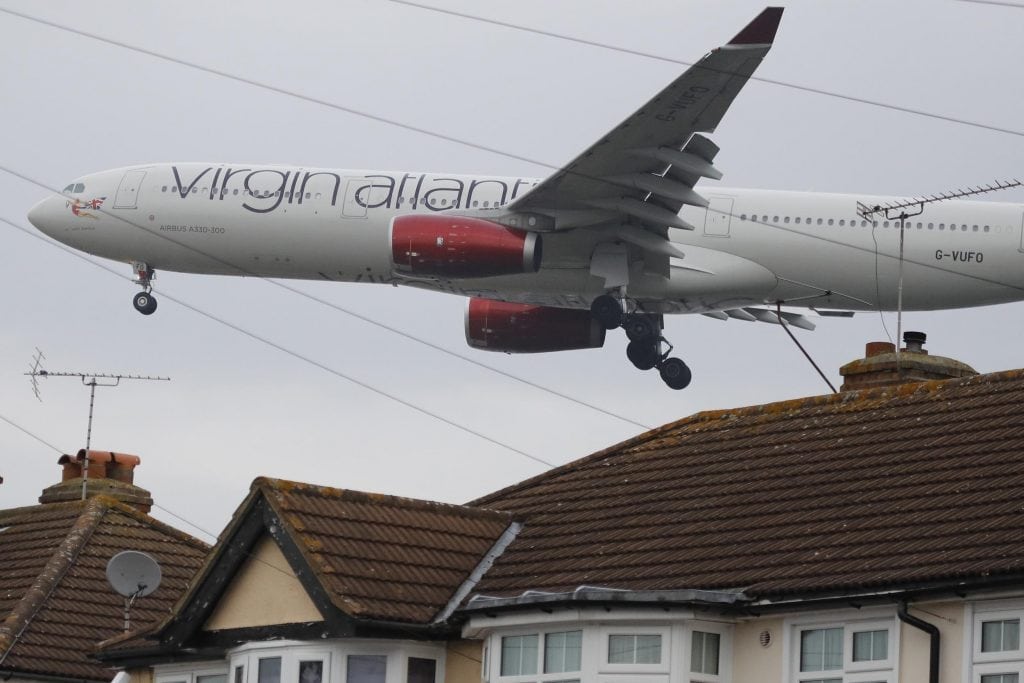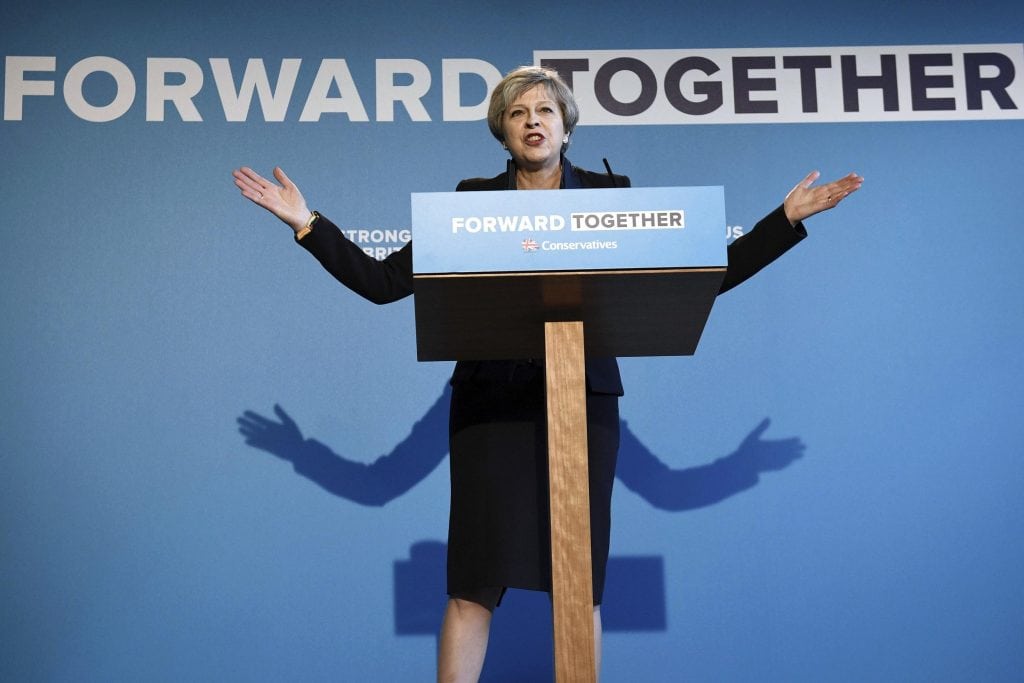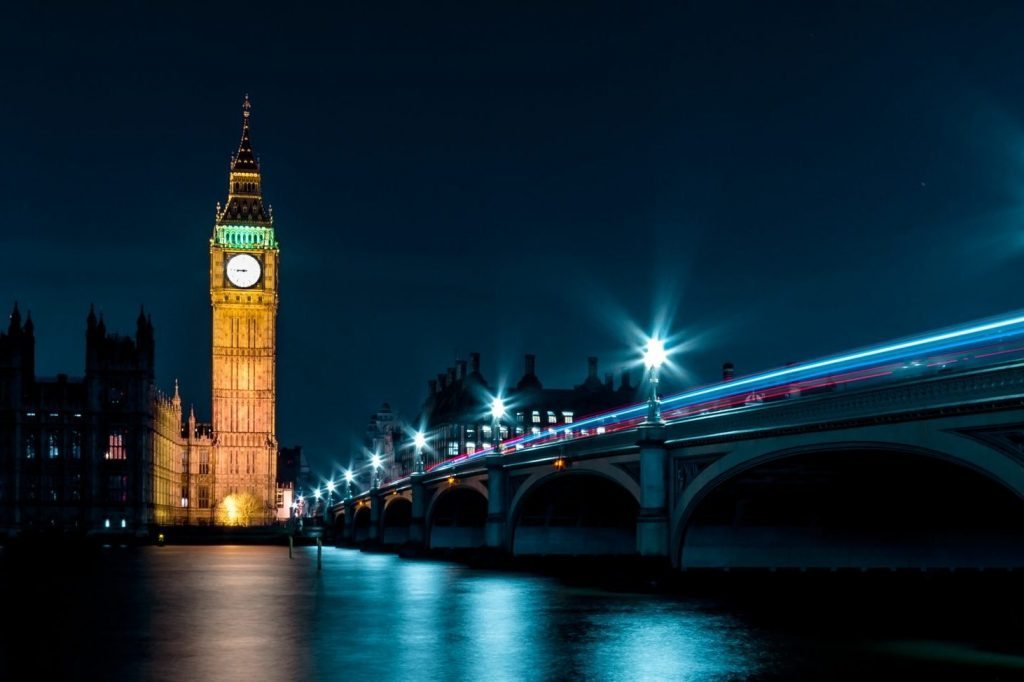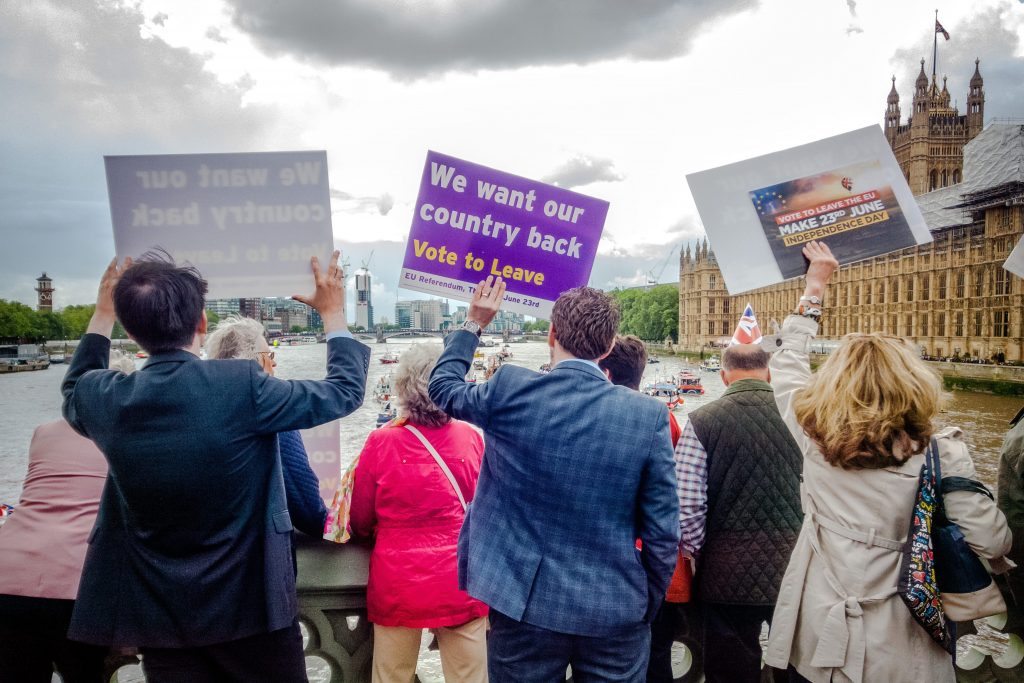Skift Take
Party manifestos should be treated with a healthy degree of skepticism. Still it is revealing to see what the priorities are and perhaps more importantly what they decide to leave out.
On June 8 voters in the United Kingdom will get the chance to decide who will form the next government. The country wasn’t supposed to have an election until 2020 but through a quirk of the electoral system current Prime Minister Theresa May was able to initiate a vote.
May is hoping her Conservative Party make big gains across the country, giving her a stronger hand when it comes to negotiating its exit from the European Union, the biggest challenge the UK has faced “since the second world war”.
Ahead of the election each of the parties releases a manifesto, detailing everything they would do if they formed a government. Current polling suggests that the Conservatives (right wing) are on course to increase their advantage over the Labour Party (left wing) with the Liberal Democrats (central) taking a small number of seats. The Scottish National Party dominate north of the border and are actually the third biggest party, but they do not contest nationally. Since the Brexit vote, right-wing populists the United Kingdom Independence Party have seen their popularity sink.
The UK tourism industry is expected to be worth more than $335 billion (£257 billion) by 2025, and account for just under 10 percent of UK gross domestic product (GDP). Uncertainty surrounding Brexit puts this under threat.
The UK’s airline industry, which helps bring millions of visitors to the country each year, is intrinsically linked to the rest of the European Union (EU). Then there is the reliance of migrant labour from the rest of the to fill tourism jobs. These and other issues relating to travel and tourism need to be addressed if the UK is going succeed on its own.
Skift took a look at each of the three main parties’ manifestos to see how seriously they were taking the subject.
Tourism
The Labour Party acknowledges that tourism is often ignored by governments.
“Labour will support tourism at the heart of government. The tourism industry represents 9.6 per cent of UK employment, 4.9 per cent of export and 9 per cent of GDP, but its importance is too often forgotten. Labour will ensure that tourism becomes a national priority again. We will reinstate the cross-Whitehall ministerial group on tourism, and ensure that government ministers across departments understand how their roles t into the national tourism agenda.”
The Liberal Democrats – the party that is campaigning for a second EU referendum – chooses to highlight some of the benefits that might be lost when the UK formally leaves in March 2019:
“Travel and tourism: Britain is an outward-looking country with commercial and leisure interests around the world, particularly in Europe. We will strive to retain traveller and tourist benefits such as the European Health Insurance Card, reduced roaming charges and pet passports, all of which are at risk by leaving the European Union.”
While Labour is focusing on inbound and the Liberal Democrats on outbound, they are at least both looking seriously at the subject.
In contrast, the Conservatives, the party most likely to form the next government, has zero mentions of tourism. Nothing. Maybe they don’t think they need to do anything because the cheap pound is doing all the work for them?
Airports

An Airbus A330-300 of Virgin Atlantic on final approach to landing skims over the rooftops of nearby houses at Heathrow Airport in London, Tuesday, Oct. 25, 2016. Britain’s government will reveal how it plans to expand London’s airport capacity Tuesday, more than a year after a special commission recommended a third runway at Heathrow. (AP Photo/Frank Augstein)
The UK debate about extra runway capacity has been going on for decades. In order to finally put the issue to bed, May’s predecessor David Cameron, created the independent Airports Commission to examine “the need for additional UK airport capacity and recommends to government how this can be met in the short, medium and long term.”
It did just this and delivered its recommendation for a new runway at Heathrow in 2015. Since then nothing has really happened and the issue remains a divisive one.
Under Cameron and then May a decision has been dodged. The Conservative’s manifesto makes reference to expansion but sidesteps any firm commitment:
“We are investing to reduce travel time and cost, increase capacity and attract investment here in the UK. We will continue our programme of strategic national investments, including High Speed 2, Northern Powerhouse Rail and the expansion of Heathrow Airport – and we will ensure that these great projects do as much as possible to develop the skills and careers of British workers.”
The Labour document doesn’t refer to Heathrow but admits that more capacity is necessary:
“Labour recognises the need for additional airport capacity in the South East. We welcome the work done by the Airports Commission, and we will guarantee that any airport expansion adheres to our tests that require noise issues to be addressed, air quality to be protected, the UK’s climate change obligations met and growth across the country supported.”
It is hard to see, however, how the first and second sentences in the paragraph can be reconciled given the serious environmental concerns over any airport expansion. Politicians love having their cake and eating it.
The Liberal Democrat opposition to expansion is at least clear. They pledge to:
“Develop a strategic airports policy for the whole of the UK, taking full account of the impacts on climate change and local pollution. We remain opposed to any expansion of Heathrow, Stansted or Gatwick and any new airport in the Thames Estuary and will focus instead on improving existing regional airports such as Birmingham and Manchester. We will ensure no net increase in runways across the UK.”
While expanding airports elsewhere in the country is commendable, the problem area is the south-east of the country in and around London.
Leaving the EU
Delivering Brexit will be a fiendishly complicated process for whoever wins in June. In less than two years, the UK has to extricate itself from 40-plus years of union and then negotiate a separate trading deal with a bloc that accounts for 44 percent of all UK exports in goods and services.
It presents a particular challenge for tourism given how closely linked we are with our neighbors.
Theresa May has been treating the campaign as if it were a presidential race with her name often superseding that of the Conservatives.
“Now more than ever, Britain needs a strong and stable government to get the best deal for our country. Now more than ever, Britain needs strong and stable leadership to make the most of the opportunities Brexit brings,” May writes in the forward to the manifesto.
(May has been repeatedly mocked for robotically chanting the phrase “strong and stable” on numerous occasions during the campaign.)
The ability to move freely between the UK and the rest of the EU is coming to an end, something that will present a huge challenge to the leisure and hospitality industry.
“As we set out in chapter three, the next Conservative government will give Britain the technical education it has lacked for decades. This will take time but we must also address the immediate needs of those sectors of the economy suffering shortages in skills. We will make the immigration system work for these sectors, whilst ensuring that we develop the skills we need for the future.
“We will therefore ask the independent Migration Advisory Committee to make recommendations to the government about how the visa system can become better aligned with our modern industrial strategy. We envisage that the committee’s advice will allow us to set aside significant numbers of visas for workers in strategically-important sectors, such as digital technology, without adding to net migration as a whole.”
The manifesto at least makes clear that ending free movement is going to cause problems for businesses and gives the Conservatives wriggle room if they need to relax immigration rules in order to keep the country functioning.
Labour’s position is closer to the Conservatives than many people would have expected:
“Freedom of movement will end when we leave the European Union. Britain’s immigration system will change, but Labour will not scapegoat migrants nor blame them for economic failures.”
The Liberal Democrats define the Conservative’s plans as “hard Brexit” and say that this “means leaving the single market, ending freedom of movement and abandoning the customs union – even though these choices will make the UK poorer and disappoint many leave voters who wanted a different outcome.”
They want a second referendum on the outcome of negotiations between the UK and EU.
The Daily Newsletter
Our daily coverage of the global travel industry. Written by editors and analysts from across Skift’s brands.
Have a confidential tip for Skift? Get in touch
Tags: brexit, politics, tourism, uk
Photo credit: Britain's Prime Minister and Conservative party leader Theresa May gestures, during the Conservative Party manifesto launch in Halifax, England. The document does not mention tourism once. Stefan Rousseau / PA via Associated Press


